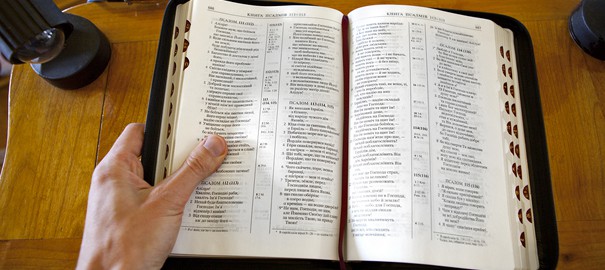Whether you realize it or not, being in the “second chair” is the ultimate leadership paradox. You are a leader: mentoring staff members, overseeing the day-to-day operations, and ensuring that the organization is running smoothly. By title or in practice, you are the Executive Pastor!
But at the same time, you are a follower. You meet regularly with your Senior Pastor and respond to the issues that he or she prioritizes. You may have strong opinions, but you do not have the final say.
It’s a role that can be maddening. In one moment, you possess tremendous authority to affect change and shape the culture of your organization. At other times, you are putting out the fires, having the tough conversations, freeing your first chair leader to lead in the most effective way possible. In between these two is a balancing act of shifting resources and energies to address today’s problems and provide long-term direction for the organization. In these moments, you are again reminded what it means to be the Executive Pastor.
Being a proactive leader and a reactive follower can be quite challenging and uncomfortable, but you know that you are there for a reason and that God desires to accomplish something spectacular in you and through you. That is why you live with this tension on a daily basis—because you realize that God’s Kingdom is worth leveraging your gifts, talents, and abilities for something greater than your discomfort.
What we hope you realize is that you are not alone. As a matter of fact, one of the most prominent figures in the Old Testament lived with the same tension of leading and following, day after day after day. The amazing commendation of his first chair encompasses the challenge of being both leader and follower.
You shall be in charge of my palace, and all my people are to submit to your orders. Only with respect to the throne will I be greater than you. (Gen. 41:40)
Do you see it?
Leader: “You shall be in charge …”
Follower: “Only with respect to the throne will I be greater than you.”
We can learn a lot about being an Executive or Associate Pastor from the life of Joseph. It is certainly one of the greatest comebacks ever! We are sure that you remember the young man who was known by his brothers as a dreamer, the one who wore the beautifully ornamented coat given to him by his father to signify his status as most favored. This young, arrogant dreamer had been thrown into the bottom of a well and sold into slavery by these same brothers. And now, as a foreigner and former prisoner, he had attained a rank of leadership that no other Hebrew in all of history has enjoyed. We do not know all that happened to Joseph, only what the Scripture reveals. But this is enough to show that his journey included some of the lowest lows and highest highs that life can offer.
For Joseph to finish like he did, a light bulb must have gone on somewhere along the way. There must have been a season when he discovered the meaning of second chair leadership. As a child in Israel, Joseph showed no understanding of subordination—he expected his older brothers to bow to him. Nor did he grasp the subtleties of influencing others—all he needed to do was run to dad to get what he wanted. And it was certainly not on his agenda to add value to the organization of Jacob & Sons, Inc.—he only cared about himself.
Life as a slave and as a prisoner taught Joseph many lessons. He was in a foreign land with a foreign language. He was no longer the favored son in his household. He had no position of influence. If he was going to survive this harsh environment, he had to find a way to set himself apart. So, with no other choice, Joseph grew up. He apparently learned quickly and retained these lessons for the rest of his life.
What principles can we glean from this great leader to foster our growth and development as second chair leaders? In Leading from the Second Chair, we explore the teachings of Scripture and the experiences of other contemporary Christian leaders. Successful second chairs such as Dan Reiland, Warren Schuh, Greg Hawkins, Kim Miller, Geoff Surratt and others have all learned valuable lessons which they were glad to share. Through our conversations and examination, a framework emerged that may help articulate what you are experiencing as an Associate or Executive Pastor. Think of this framework as a tri-focal lens that helps you look into three distinct areas of your own ministry. Like any prescription eyewear, it provides clarity and focus to help you navigate the unique demands of this ultimate leadership paradox. We call these lenses the three apparent paradoxes of second chair leadership.
The biggest struggle for many second chairs is in defining their role and managing the complex network of relationships, particularly with their first chair. We call this the subordinate/leader paradox. The challenges described in the opening paragraphs touch on the essence of this paradox.
The second paradox, which we call deep/wide, looks into one’s daily work habits. Too many leaders in the church are quite “deep” in their respective areas, but too few are wide. Deep and wide leaders look throughout the organization to see how they might best advance the overall vision through their ministry or by serving another ministry. These leaders, though focused on their own areas, have the big picture in mind and add value throughout the organization because of their deep and wide perspective.
Second chair leadership has an intense emotional side as well, something we refer to as the contentment/dreaming paradox. This paradox calls leaders to dream, but while envisioning where God might be leading tomorrow, it challenges them to choose contentment today. In fact, the choices you make to grow and excel in your current role are often how God enables you to realize your dream. This is the challenge of being content while dreaming.
As you see more clearly and understand more fully the tensions that you will experience in each of these areas, you will be better equipped to navigate the paradoxes and make a more significant contribution to God’s Kingdom. Wherever you serve, and in whatever capacity, we hope that you will be inspired to honor God in all of your ways. We pray that God will enrich your day-to-day living as you find greater purpose and motivation to lead and serve in His Kingdom. Joseph discovered a much greater purpose in Egypt, and we have found joy in discovering God’s purposes in our own second chair roles. Our prayer is that this would be true for you as well.










